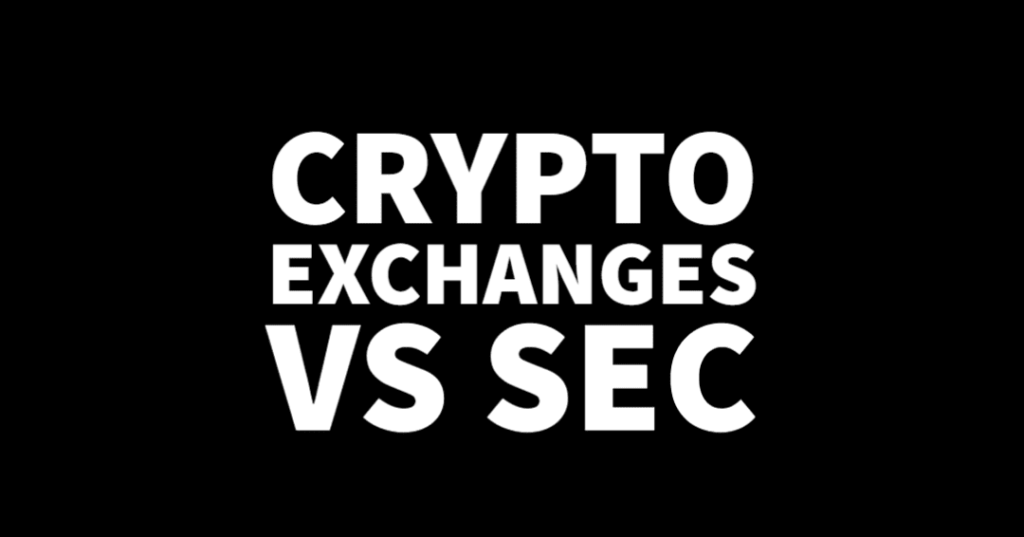The cryptocurrency world in the United States is currently on a roller-coaster ride. Major players, Coinbase and Binance, have been caught in the crosshairs of the Securities and Exchange Commission (SEC). The regulatory body alleges these industry giants traded crypto assets deemed securities, which they claim should have been registered.
This stern action by the SEC signifies a seismic shift in the U.S crypto landscape. It places other exchanges such as Kraken, Gemini, Crypto.com, and OKCoin under intense scrutiny, potentially exposing them to similar legal actions. Fireblocks’ chief legal and compliance officer, Jason Allegrante, warns that all U.S. exchanges should now take heed of the regulatory storm brewing.
Meanwhile, Coinbase and Binance remain steadfast, vehemently denying the SEC’s allegations and vowing to defend their stance robustly in court. These firms, along with others in the crypto space, argue that many tokens are closer in nature to commodities rather than securities.
The numbers don’t lie. pic.twitter.com/lec4wkp6RO
— Coinbase 🛡️ (@coinbase) June 6, 2023
However, the real bone of contention is the fundamental disagreement over defining a cryptocurrency as a security. This debate exposes a critical gap in the regulatory landscape surrounding cryptocurrencies.
Securities are essentially tradable financial instruments, such as stocks and bonds, often representing ownership or creditor relationships. In contrast, the characterization of crypto tokens as commodities implies they are basic goods interchangeable with other goods of the same type, like gold or oil.
As the crypto industry treads on this tightrope, it becomes glaringly evident that a well-defined regulatory framework is urgently needed to avoid the ambiguities of securities and commodities.
The current SEC lawsuits have sent shockwaves through the industry. Regardless of their outcomes, they have already signaled a tightening grip of oversight over crypto exchanges. With the shadow of legal action looming, the industry finds itself at a critical crossroads that could fundamentally alter its future trajectory.
The SEC’s approach, while potentially detrimental to smaller companies, is viewed by some, like SEC chair Gary Gensler, as a necessary step toward securing investor trust and adapting business models to a new era of compliance.
In light of these events, many industry observers anticipate a geographical shift in the crypto world. With around 90% of crypto trading already taking place outside the U.S, exchanges might continue to expand into regions with more favorable regulations, and companies like Coinbase have even considered moving their headquarters internationally.
The current situation underscores the delicate balance between innovation and regulation. As the SEC doubles down on its oversight, the crypto industry must remain resilient and adaptable, ready to navigate the storm of regulatory scrutiny.
By redefining their operational and legal strategies, U.S. crypto exchanges can turn this regulatory challenge into an opportunity – one that strengthens the industry’s standing and ensures its sustainability in the long run.
